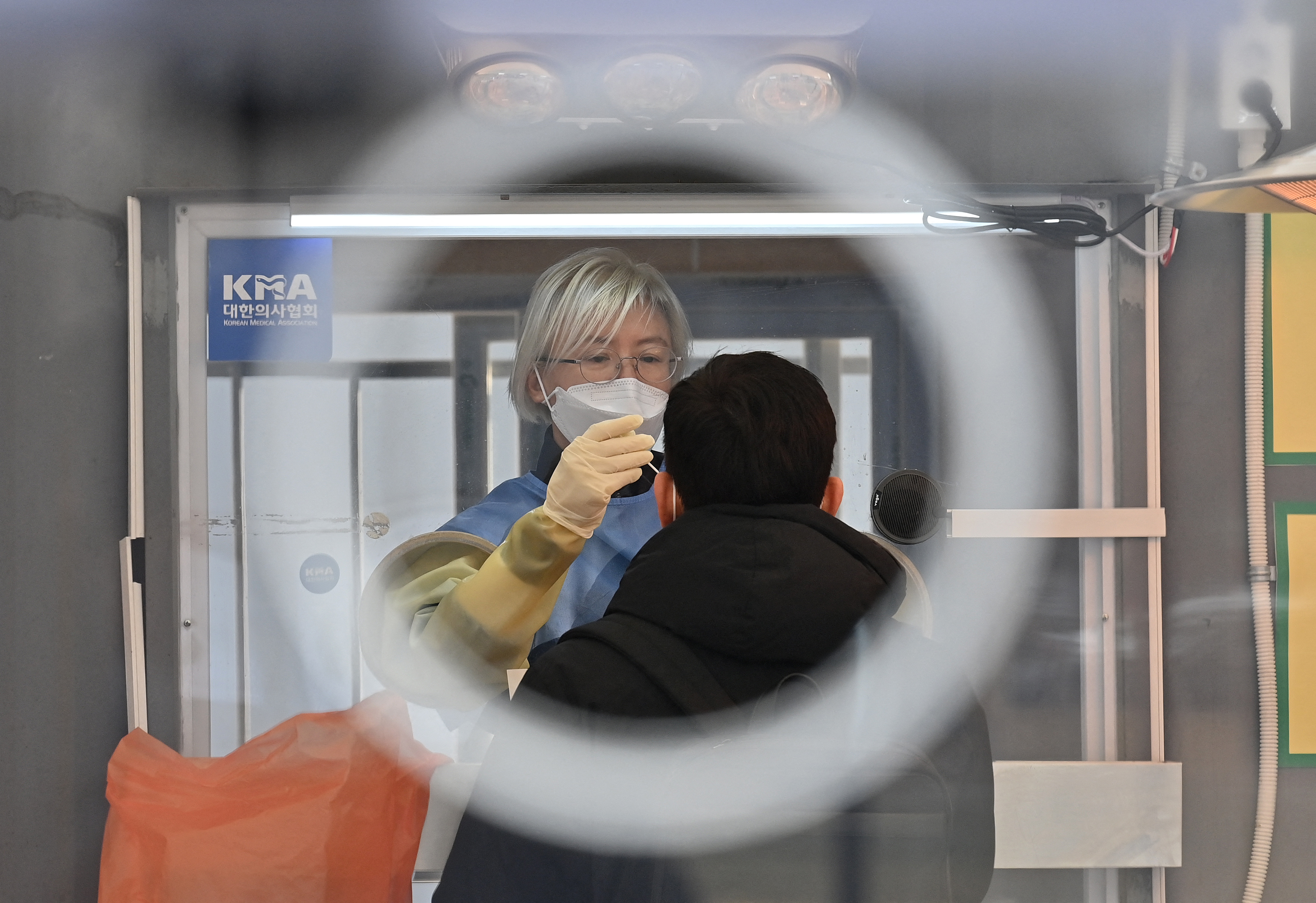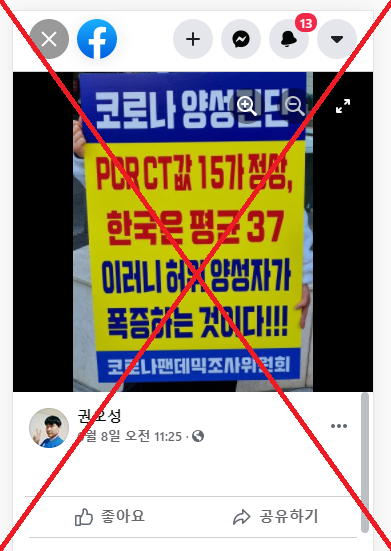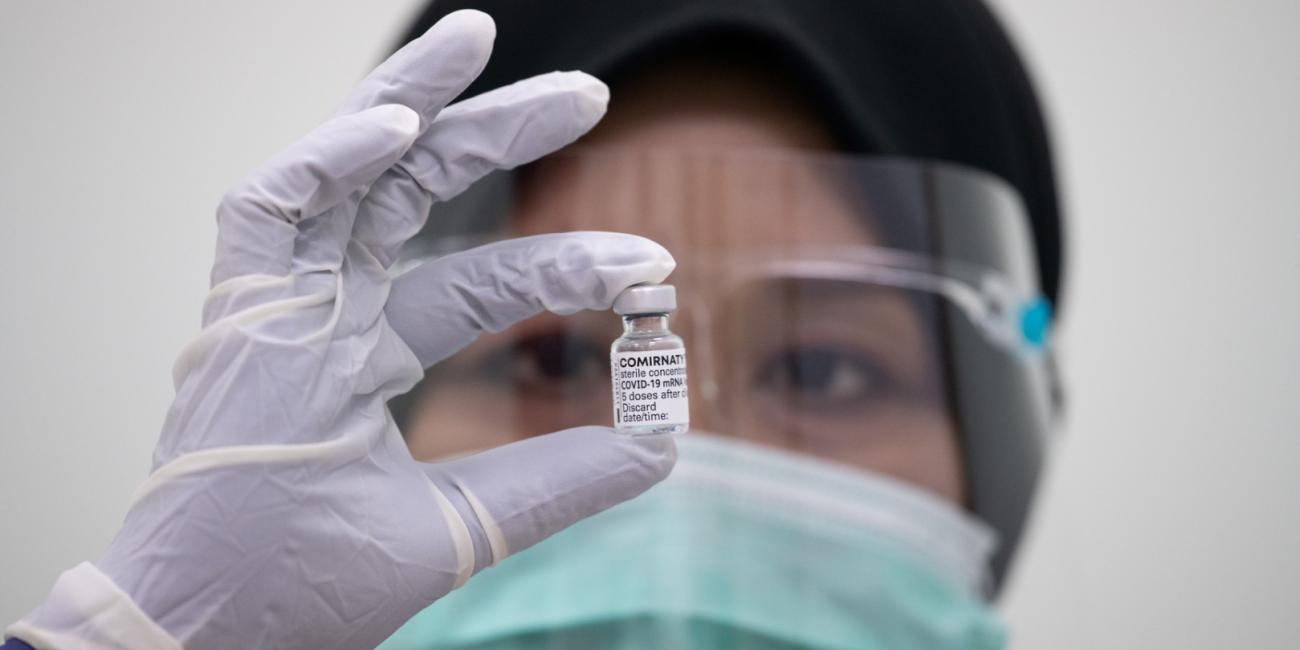
Posts mislead on Covid-19 testing in South Korea
- This article is more than four years old.
- Published on June 24, 2021 at 11:00
- 1 min read
- By SHIM Kyu-Seok, AFP South Korea
The claim was shared here on Facebook on June 8, 2021.
The post shows a graphic with Korean-language text that reads in part: “Covid positive diagnoses. The normal CT value is 15, but Korea’s average is 37.”

“Ct value” -- or the cycle threshold value -- is a number used in RT-PCR tests to categorise the concentration of viral genetic material detected in a patient.
RT-PCR tests are widely used in South Korea to diagnose Covid-19.
The post suggests that South Korea's measurements for testing have inflated reported Covid-19 cases in the country.
As of June 23, South Korea has recorded more than 150,000 Covid-19 infections.
Identical claims were also shared in Facebook posts here, here, here and here.
But the posts are misleading.
‘No universal value’
RT-PCR tests for Covid-19 have no “normal” Ct value as the misleading posts claim.
“There is no universal optimal cut-off Ct value. Each [testing kit] manufacturer chooses the cut-off number,” Professor Kwon Gye-cheol, chair of the Korea Society for Laboratory Medicine (KSLM), told AFP on June 21, 2021.
Ct values used in six approved RT-PCR testing kits in South Korea range from 35 to 40, according to KSLM here.
‘Gold standard’
RT-PCR tests are the “gold standard” in detecting Covid-19 according to credible global health agencies, according to international health authorities including the WHO and the US Centers for Disease and Control and Prevention (CDC).
Self-administered Covid-19 tests -- typically rapid antigen tests -- should be combined with RT-PCR tests to ensure accuracy, according to this South Korean government report.
AFP has previously debunked misleading claims about the accuracy of RT-PCR tests for diagnosing Covid-19 here, here and here.
Copyright © AFP 2017-2026. Any commercial use of this content requires a subscription. Click here to find out more.
Is there content that you would like AFP to fact-check? Get in touch.
Contact us




